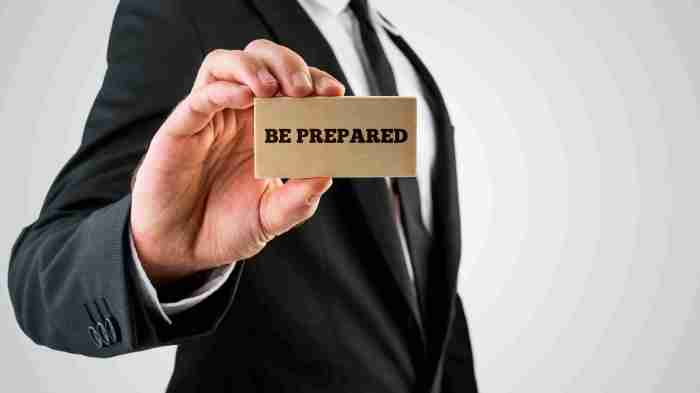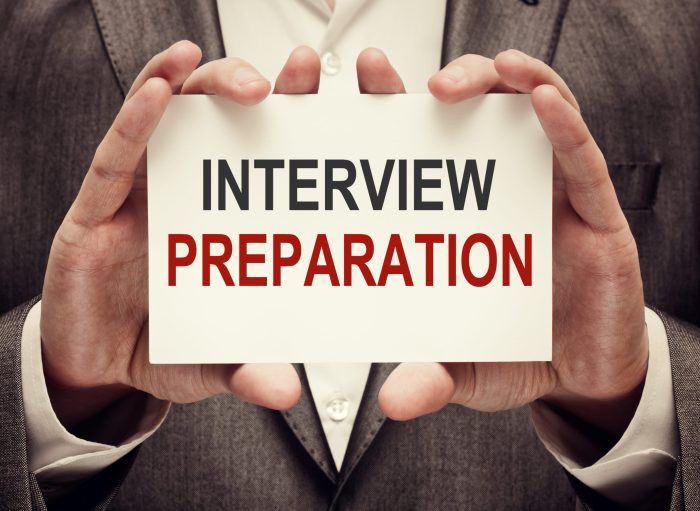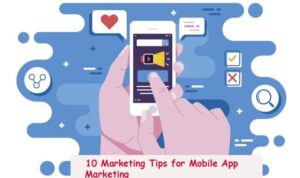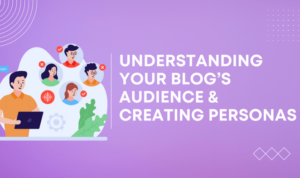Job Interview Preparation is all about getting ready to crush your next job interview like a boss. From researching the company to nailing those tough interview questions, this guide has got you covered. So, buckle up and get ready to land that dream job!
Understanding the Importance of Job Interview Preparation
Preparing for a job interview is crucial for success in the competitive job market. It is the key to presenting yourself in the best possible way and standing out from other candidates.
Benefits of Job Interview Preparation
- Increased Confidence: Thorough preparation helps you feel more confident and composed during the interview. Knowing your strengths, experiences, and how to articulate them effectively can boost your confidence levels.
- Improved Performance: Being well-prepared allows you to answer questions more smoothly, showcase your skills, and demonstrate your suitability for the role. This can lead to a more impressive performance overall.
- Better Communication: Preparation helps you organize your thoughts and practice articulating your responses clearly and concisely. This can enhance your communication skills and ensure you effectively convey your qualifications to the interviewer.
- Enhanced Impressions: When you prepare thoroughly, you show the interviewer that you are serious about the opportunity and have taken the time to research the company and the role. This can leave a positive impression and set you apart from other candidates.
Researching the Company and Position

Researching the company and the specific job role is crucial for a successful job interview. It shows the interviewer that you are genuinely interested in the position and have taken the time to prepare.
Understanding the company’s values and culture can greatly impact the interview. By aligning your responses with the company’s values, you demonstrate that you would be a good fit within the organization. Additionally, showing that you understand the company’s culture can help you connect with the interviewer on a more personal level.
Researching the company can also help tailor your responses during the interview. For example, if you know that the company values innovation, you can highlight your experience with implementing new ideas. If the company has a strong focus on customer service, you can share specific examples of how you have gone above and beyond to satisfy customers in the past.
Examples of Tailoring Responses
- Highlighting your experience with projects that align with the company’s goals and mission.
- Using specific examples from your past work that demonstrate skills relevant to the job requirements.
- Referencing recent company achievements or initiatives and expressing your excitement to potentially contribute to future successes.
Practicing Common Interview Questions
Practicing common interview questions is crucial for job seekers to prepare themselves for the interview process. It helps candidates become more confident, articulate, and ready to impress potential employers with their responses.
Identifying Common Interview Questions
- “Tell me about yourself”: This question allows you to give a brief overview of your background and experiences.
- “What are your strengths and weaknesses?”: Prepare to highlight your strengths and show how you are working on improving your weaknesses.
- “Why do you want to work for this company?”: Research the company and tailor your response to show your interest and alignment with their values.
- “Where do you see yourself in 5 years?”: Be prepared to discuss your career goals and how this position fits into your long-term plans.
Importance of Practicing Responses
- Practicing responses to common questions helps you articulate your thoughts clearly and concisely during the interview.
- It allows you to showcase your skills, experiences, and qualifications effectively to the interviewer.
- By practicing, you can also work on eliminating filler words, such as “um” and “like,” to sound more professional and confident.
Structuring and Delivering Answers
- Start your response with a brief introduction, followed by specific examples or experiences that demonstrate your skills.
- Use the STAR method (Situation, Task, Action, Result) to structure your answers for behavioral questions.
- Practice active listening during the interview and tailor your responses to address the interviewer’s concerns or questions.
Dressing Appropriately and Body Language

Dressing appropriately and maintaining positive body language are crucial aspects of making a good impression during a job interview. Your appearance and non-verbal cues can greatly impact how you are perceived by the interviewer.
Significance of Dressing Appropriately
- Dressing professionally shows that you respect the opportunity and take the interview seriously.
- Appropriate attire can help you feel more confident and comfortable during the interview.
- It demonstrates your understanding of workplace norms and expectations.
Influence of Body Language
- Positive body language, such as good posture and eye contact, conveys confidence and attentiveness.
- Smiling and nodding can show engagement and interest in the conversation.
- Avoiding fidgeting or slouching portrays professionalism and respect for the interviewer.
Tips for Maintaining Positive Body Language
- Practice a firm handshake and maintain eye contact throughout the interview.
- Sit up straight and avoid crossing your arms, which can signal defensiveness.
- Use gestures to emphasize key points but avoid excessive movements that may distract the interviewer.
- Listen actively and show interest through your facial expressions and body posture.
Mock Interviews and Feedback: Job Interview Preparation
Participating in mock interviews provides valuable practice and preparation for the real thing. It allows candidates to experience the interview process in a simulated environment, helping to reduce nervousness and build confidence.
Receiving feedback after a mock interview is crucial for improving performance. Constructive criticism from interviewers or peers can highlight areas of improvement, such as communication skills, body language, or specific answers to questions. This feedback helps candidates understand their strengths and weaknesses, allowing them to make necessary adjustments before the actual interview.
Benefits of Participating in Mock Interviews, Job Interview Preparation
- Gain confidence and reduce nervousness
- Practice answering common interview questions
- Receive constructive feedback for improvement
- Identify areas of strength and weakness
Incorporating Feedback into Future Preparations
After receiving feedback from a mock interview, candidates should take the following steps to incorporate it into their future preparations:
- Reflect on the feedback received and identify areas for improvement
- Practice addressing the identified weaknesses or shortcomings
- Seek additional mock interview opportunities to apply the feedback
- Ask for specific advice on how to improve in the areas highlighted
Hey there, looking to up your game in the online world? Check out this Affiliate Marketing Guide for all the tips and tricks you need to start making money while chilling in your pajamas. It’s like having your own online hustle without even leaving your room. Get ready to level up your cash flow, bro!
Hey there, looking to dive into the world of making money online? Check out this killer Affiliate Marketing Guide that breaks down the ins and outs of affiliate marketing. It’s like having your own personal money-making playbook at your fingertips. Don’t sleep on this opportunity to level up your hustle game!












